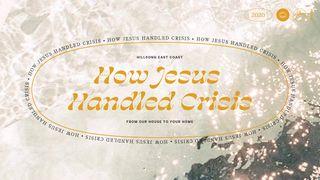Bible Basics Explained | Anxiety Part 1Sample
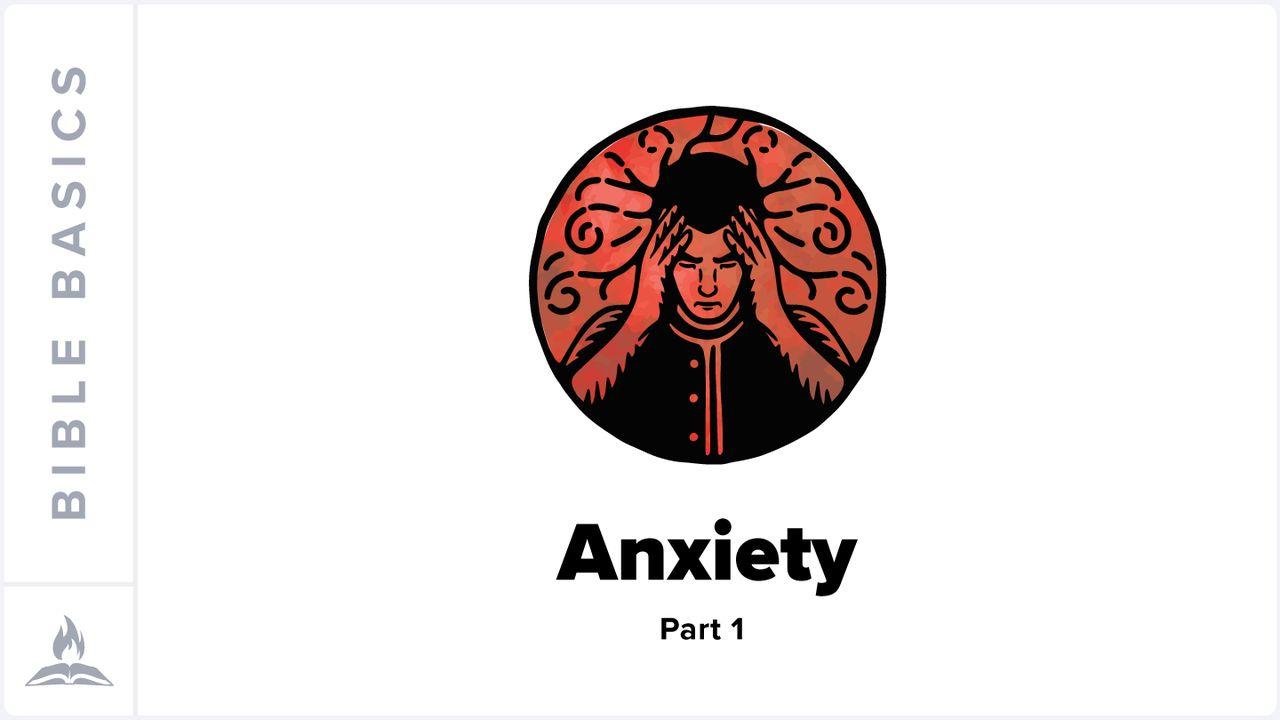
Day 3 | Psalm 139:19-24 | Search Me
This devotional works best as an audio experience. Hit the play button now, and read along if you like. All verses are quoted from the NIV.
Hello again friends, and welcome back to Bible Basics Explained. Kris Langham with you for one more day in Psalm 139, as we finish out part one in our series on anxiety.
Now before we dive back in to the Word, I want to clarify something important here - and that’s the difference between the feeling of anxiety and anxiety disorder. Anxiety is a normal reaction to life’s challenges, and often it is useful to alert us and remind us of issues we need to respond to. It can even motivate us to study more or prepare for something important. That’s all healthy. And when it gets too much, the Bible is a great help in keeping it healthy and getting your heart back to peace. That’s what this series is all about. However, when anxiety becomes overwhelming and unmanageable, or when your anxieties are unexpected, not based on reality, or excessively long lasting, that may be a sign of an anxiety disorder. Anxiety disorder is a mental health issue, and it can and should be treated by a doctor of mental health. If what I described sounds like you, please contact a good doctor. Christians experience mental health issues just as often as non-believers. Of course, our faith in God makes it a different experience, but our faith does not give us a free pass from struggles - either physical or mental. The Bible supports the work of doctors and the use of medicine. It can be humbling to see a psychiatrist, but then humble is a good thing, and we could all use a little more of that.
Well, back here in Psalm 139, we left off at verse 19. Thus far, we’ve had three stanzas, and they have taught us: God knows you, God is with you, and God made you. Pretty great. But then in verse 19, we take a rather drastic turn. Read with me:
“If only you, God, would slay the wicked! Away from me, you who are bloodthirsty!” (Psalm 139:19)
Woah. Where did that come from? “Slay the wicked”? "Away you bloodthirsty"?
Umm, King David. I like your Psalm and all… but is there something you need to talk about?
Actually, yes. There almost certainly was. And this is a key insight to understanding the Psalms. The Psalms in your Bible are not simply God’s word to mankind. These are man’s words to God. David was quite human. So were Asaph and Moses and the other Psalmists. And they wrote from the midst of very human and very difficult situations. And while I do believe that their words were inspired by the Holy Spirit, I also believe that the Holy Spirit allowed them to express their true feelings. Oh they get real! There are a few passages in the Psalms that sort of stop you and make you ask, “Is that in the Bible?!”
Yup. It’s right there. And go ahead - keep on reading. First David asks God to slay the wicked, then in verse 20:
“They speak of you with evil intent; your adversaries misuse your name" (Psalm 139:20).
Okay so we get some insight on what David was dealing with. He is dealing with some very wicked people. And they talk about God, but their intent is evil. This is the worst kind of wicked: a wolf in sheep’s clothing - hiding the evil behind a veil of godliness. Pretending to be God’s friends, they are in fact His adversaries. So how does David respond? Verse 21:
“Do I not hate those who hate you, Lord, and abhor those who are in rebellion against you?” (Psalm 139:21).
Well that doesn’t sound right. I mean these are bad people - they hate God - but should we hate them back? Didn’t Jesus love us even when we were his enemies? Didn’t He die for us while we were sinners? And shouldn’t we offer that same kind of love to others?
Well maybe… maybe David doesn’t really mean hate. Maybe he hates the sin but loves the sinner. Surely he has some good feelings toward them. Let’s keep reading. Verse 22:
“I have nothing but hatred for them; I count them my enemies” (Psalm 139:22).
Alright, I give up. David really hates them. But that’s just not right! How did it end up in the Bible?
The answer to that is a huge lesson for us. The words here are how David felt. They are honest and real and raw. And they were reasonable, but that doesn’t mean they were right.
You need to know that. When your thoughts take you to a bad place, and your feelings toward others are not exactly Christian, you need to know that God can handle that. In fact, the best thing for you to do is to open up and get honest with God. Tell him how you feel about it. David did. And God recorded those thoughts throughout the Psalms so that you could see you’re not alone. You’re not the only one who feels like that.
Now that still doesn’t make it right. The point here is not to validate your thoughts or vindicate your self-righteous attitude, but it should help you process and move forward. And that’s exactly what David does. Immediately after David’s tirade of anger against the wicked, he stops. And in verse 23:
“Search me, God, and know my heart; test me and know my anxious thoughts” (Psalm 139:23).
Now that is powerful. David invites God to search him, and to know him. Notice that’s exactly where we started in verse 1: “You have searched me, Lord, and you know me.”
It’s already true. But here, as David gets caught up in anxiety and anger over his enemies, he invites God back in. Search me Lord.
He welcomes the Lord’s searching right into his heart, and he asks the Lord:
“Test me and know my anxious thoughts” (Psalm 139:23).
David’s thoughts were far from godly in that moment, but he does not hide them from God. He wants God to test them. To know his anxieties.
That brings up a question. Is anxiety or worry a sin? I’ve heard many people say that it is. They explain that to worry is to not trust God - and that’s a sin. While I do see the logic, I think it’s a dangerous conclusion. First of all, it’s a man-made conclusion. The Bible does not say it directly. Secondly, anxiety is a universal human emotion. We all experience it. And while it can certainly get to unhealthy levels - even sin - it’s also a very normal and human response to the pressures and stresses of the world.
It’s like anger. Anger can certainly cause you to sin. That’s why Ephesians says, “In your anger, do not sin. And do not let the sun go down on your anger.” In other words, deal with anger in a healthy way - a righteous way - without sinning. And the same goes for anxiety.
Calling anxiety a sin in all cases can once again add shame to a person who is already struggling. In some cases, the anxiety might be a symptom of a sinful heart that refuses to trust God. But sometimes it’s just normal. We see many Bible heroes anxious and worried in all kinds of situations. And rather than rebuke them for sin, the Lord most often comforts and encourages them.
So how do you know which sort of anxiety you have? Well, pray as David did, “Lord, search me… and know my anxious thoughts.”
And in verse 24:
“See if there is any offensive way in me, and lead me in the way everlasting” (Psalm 139:24).
Hmmm. Now that’s good. David invited God in to know his thoughts. He asked God to test them and show him if there was anything offensive. God help me through these thoughts. Help me recognize the sinful ones. If it’s wrong, show me. Help me - as 2nd Corinthians 10 tells us - “take captive every thought to make it obedient to Christ.” And as David says here, “Lead me in the way everlasting.”
Now that is a beautiful finish to a beautiful Psalm. I hope it encouraged you as much as it did me. Thanks for spending these three studies with me. Hope you can join me again in Part 2 as we’ll dive in to Paul’s encouragement to find the peace of God that passes understanding (Philippians 4:7). I love that. I’ll see you there next time.
And look for more in the Bible Basics Explained series on peace, faith, science, marriage and more all coming soon. Or check out my favorite plans - the Explained series through every Bible book. We’ve got audio guides just like these that walk through each Bible book chapter by chapter, with clear explanation and careful application. Just search the reading plans for "explained" to find all of those.
For Thought & Discussion:
Why is it important to let God know your thoughts, even if your thoughts aren’t godly?
Verses 23-24 are the heart of this Psalm. Try rewriting them in your own words, and explain what they mean to you.
Bible Basics is a production of Through the Word. You can find all our plans and our audio guides on the Through the Word app at throughtheword.org . And that’s it. Don’t forget to read Psalm 139 one more time, and I’ll see you on the next journey!
Start Part 2 now! Find it at https://www.bible.com/reading-plans/20630/
Scripture
About this Plan

“Search me Lord, and know my anxious thoughts.” The 139th Psalm has some of the Bible’s most beloved passages, reminding us that we are fearfully and wonderfully made, and thoroughly known by God. In this Bible Basics Explained series, Kris Langham explores what the Bible teaches about anxiety and opens Psalm 139 to remind us that we are fully known and fully loved. Audio guides by Through the Word.
More
We would like to thank Through the Word for providing this plan. For more information, please visit: http://throughtheword.org
Related Plans
![[All Things Series] We the People](/_next/image?url=https%3A%2F%2Fimageproxy.youversionapi.com%2Fhttps%3A%2F%2Fs3.amazonaws.com%2Fyvplans%2F20832%2F320x180.jpg&w=640&q=75)
[All Things Series] We the People

Something to Really Look Forward To
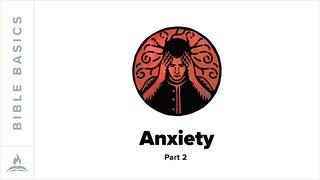
Bible Basics Explained | Anxiety Part 2

Introduction to the Bible

Jesus Wept:Lessons From the Times Jesus Wept
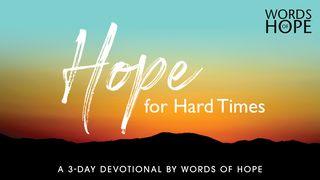
Hope for Hard Times
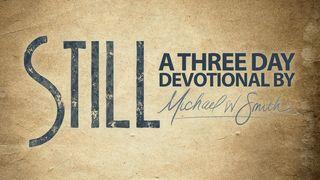
STILL: a 3-Day Devotional by Michael W. Smith

Team Jesus
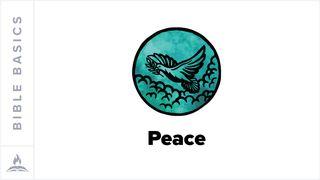
Bible Basics Explained | Peace
